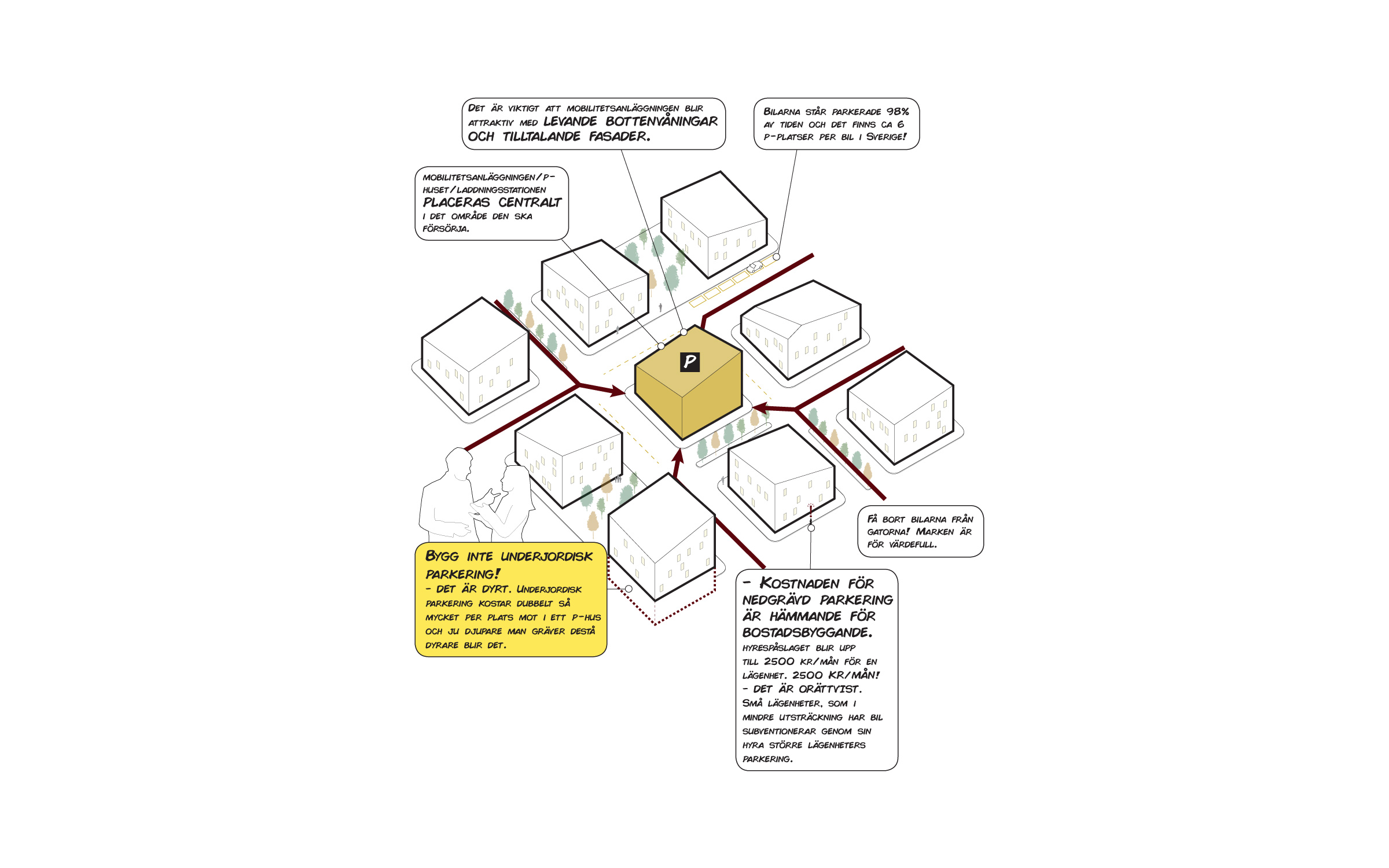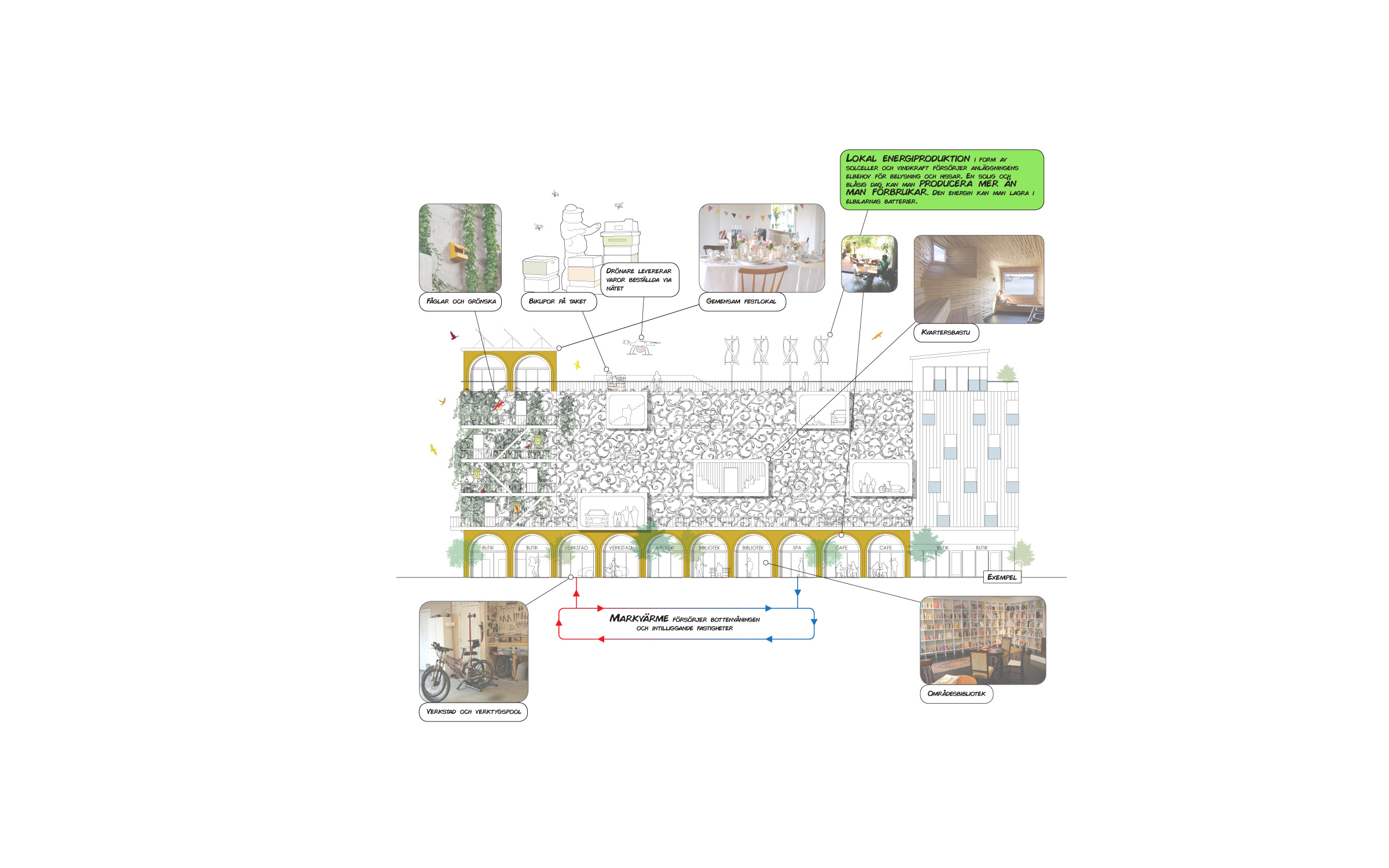The mobility machine
Technological developments in recent years have led to new types of vehicles, equipped bicycles with electric power and cargo boxes, improved the infrastructure for electric cars and the capacity of batteries. Changing lifestyles and priorities, together with the sharing economy and new payment models, mean that we are increasingly moving away from privately owned cars. However, the need and desire to move remains, which creates changing conditions and room for new solutions when planning cities. We believe a step in the right direction is to stop talking about parking and start talking about mobility. With centrally located facilities, mobility houses, different types of transport can be gathered in one place, which facilitates transitions between different modes of transport and the possibility of choosing the most suitable transport at the time, so-called "mobility on demand".
The mobility building will be strategically located to link optimally to natural access routes, public transport, urban cycling systems and catchment areas. The ground floor is activated with local services and community functions, and the mobility building can advantageously be created on one or more sides with e.g. offices or housing.
The idea is that the mobility house will be the area's natural meeting place where, in addition to moving around, you can have a coffee, shop, pick up your e-commerce goods, grow on the roof, harvest honey, borrow and return books in the area library, repair and wash your bike or why not take a sauna?
Just as petrol stations decided in the 1990s that they should no longer smell of petrol and oil, but of freshly baked bread, the mobility house of the future will smell of buns!
The project was developed as a contribution to the Imagine Open Skåne 2030 competition organized by Architects Sweden Skåne and Region Skåne in 2016. The vision developed in the competition entry has then formed the basis for FOJAB's further work in the following areas competence area parking/mobility.
See also:
Fullriggaren, Malmö
The deck, Västerås

